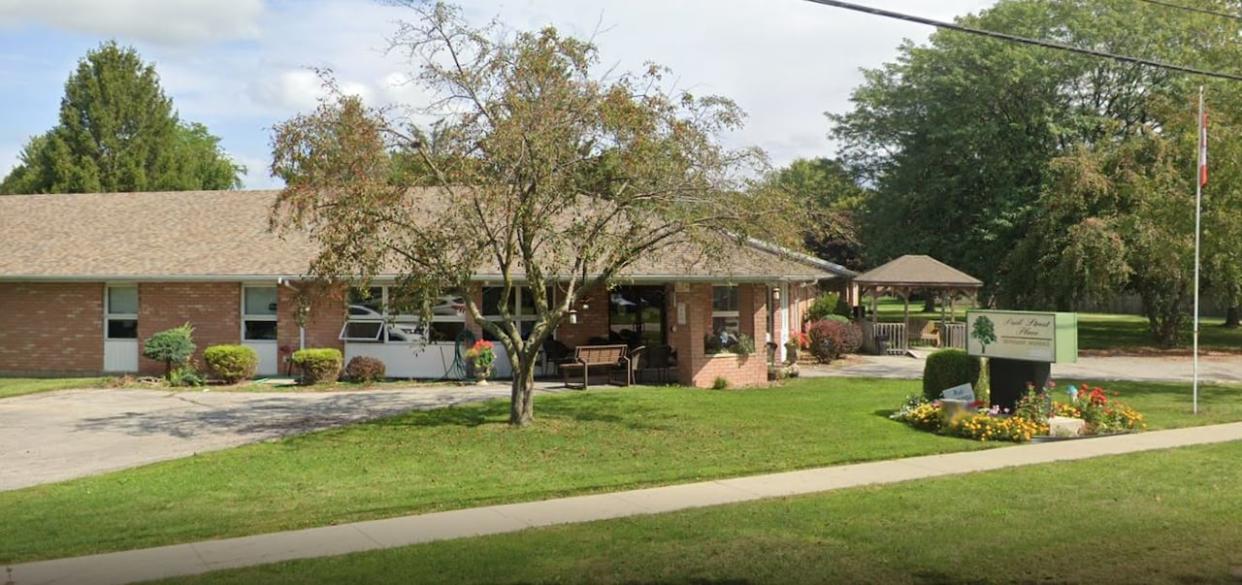Chatham-Kent retirement home to have licence revoked over 'irresponsible' operations: regulator

A Chatham-Kent retirement home operator has been ordered to either sell or shut down the home after a provincial regulator decided to revoke its licence, finding the home failed to provide proper care and is operating in a way that is "irresponsible" and "incompetent."
In an order issued to Park Street Place in Dresden, Ont., Monday, the Retirement Homes Regulatory Authority (RHRA) stated that the home's owner has until May 29 to determine whether they will sell the home to someone that will run the place as a retirement home, or stop operating as a retirement home.
CBC News called Park Street Place Thursday, but was told "no comment," by someone who did not identify their position.
Robby Zook has had family living at the home for over a year. He says staffing levels started to drop off over the summer, and the situation worsened in the fall.
"Something like this [decision] comes out and, you know, while you've had suspicions for a while that there might have been something off with how a place is being run, it's just a different level to see it in writing — words like incompetence and neglect."
He has questions about the level of oversight the home received, and worries what will happen if new accommodations cannot be found in time.
"Places in long-term care and retirement homes, those have always been at a premium, and you know, there's wait lists," he said.
Debt, inadequate care, improper staffing, RHRA finds
The deputy registrar of the RHRA, a independent, not-for-profit regulator mandated by the government to oversee Ontario retirement homes, said in its order that it has "reasonable grounds" to believe that the licence holder has violated "numerous requirements" under the Retirement Homes Act.
Those include, "failing to provide necessary care services to residents and failing to protect residents of the home from neglect."
According to the RHRA, the home has 49 suites and is able to have 52 residents.
It says the home is being run in a "critical state of debt," that has led to staffing, vendor and supplier interruptions.
"Outstanding payments to external staffing agencies have resulted in interruptions in securing temporary staff to ensure that the home has, at all times, a sufficient number of staff," reads the order.
As a result of "insufficient staff payments," the order says that staff have resigned or taken leaves of absence which "has left the home insufficiently staffed and residents not receiving adequate care."
"The licensee is focused on reducing expenses and is not guided by ensuring resident needs are met and resident health is safeguarded. The licensee does not appear to have the good-faith intention or ability to operate the home in compliance with the [Retirement Homes] Act," the order reads.
The RHRA says that the licence holder of the home, listed as 2615412 Ontario Inc., can appeal this order to the License Appeal Tribunal.
This is not the first order the home has received: In September 2023, the RHRA ordered the company to hire a manager to oversee the home. That order referred to "staff shortages that rose to a critical level."
On their website, Park Street Place's mission statement claims that their, "priority is to provide person-centred care by empowering staff to provide high quality of life to each resident."
It adds that it is "one of the most affordable homes in the area."
Advocate says licences rarely revoked
Laura Tamblyn Watts, CEO of Canada's senior advocacy group CanAGE, says that it's rare for the RHRA to revoke a licence.
Over the last five years, the RHRA has issued 21 orders to revoke a home's licence in Ontario.

Laura Tamblyn Watts, CEO of Canada's senior advocacy group CanAGE. (Jennifer La Grassa/CBC)
"For seniors and their families to see this kind of potential abuse and neglect is terrifying, we've been through COVID-19 and we know what it looks like when older adults who are frail and need help are neglected," she said.
"For many people who are trying to think ahead — 'where can I go to get safe care?' — cases like this strike fear into our hearts."
Tamblyn Watts says that if the home doesn't sell to another owner that operates it as a retirement facility, then it can continue to stay open as a seniors residence.
"There's a real danger here," she said.
"When you have a licensed facility like this one decide not to improve conditions and then they no longer become licensed, what they end up doing, is ... operating like a retirement home without the support, provisions and oversight."
For families looking for a refund on accommodations or services, Watts says that will also be a challenge.
She says that the residents fall under the Residential Tenancies Act and could go to the Landlord and Tenant Board, but that a reimbursement on services will be harder to get and would likely require hiring a lawyer.


